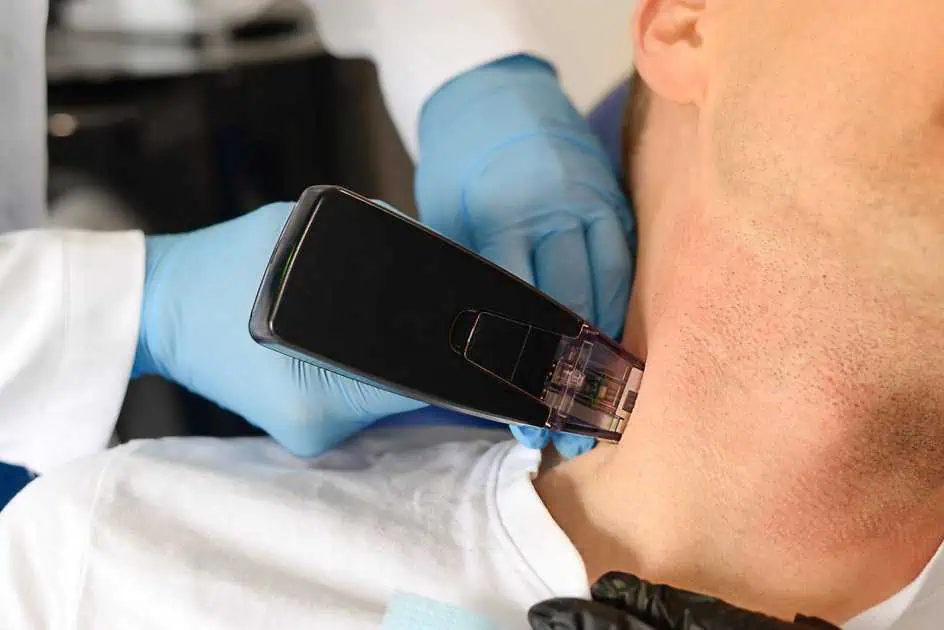Ever heard of IV Vitamin therapy? It’s been gaining popularity lately, claiming to boost energy, fight fatigue, and even cure hangovers. But what exactly is it, and is it all it’s cracked up to be? Let’s break down the science behind IV therapy and see if it can live up to the hype.
What is IV Therapy?
Imagine this: instead of swallowing a pill, essential vitamins and minerals works directly into your bloodstream through an IV (intravenous) line.
That’s the basic idea behind IV therapy. This method works through the digestive system, allowing for quicker absorption of nutrients.
IV therapy comes in different “cocktails,” each containing a specific mix of vitamins, minerals, and antioxidants tailored to address various needs. Some popular options include:
- Hydration IVs replenish fluids and electrolytes, ideal for dehydration or after intense workouts.
- Immune Boost IVs: Packed with vitamins like C and D, these aim to strengthen the immune system and fight off illness.
- Energy Booster IVs contain B vitamins and other nutrients to combat fatigue and elevate energy levels.
Potential Benefits of IV Therapy
While research on IV therapy is ongoing, there are some situations where it might offer advantages:
- Aiding Vitamin Deficiencies: For people with digestive issues like Crohn’s disease or those who struggle to absorb nutrients from food, IV therapy can ensure their body gets the vitamins it needs.
- Rapid Hydration: IV fluids can quickly rehydrate someone severely dehydrated, especially after illness, surgery, or excessive sweating.
- Post-Surgical Recovery: IV therapy can provide essential nutrients and hydration to support healing after surgery.
These are some established benefits, but it’s important to note that research on IV therapy for other purposes, like boosting energy or fighting hangovers, is limited and inconclusive.
Beyond the Basics: Exploring Additional Considerations of IV Therapy
While we’ve covered the core aspects of IV therapy, there are some additional factors to ponder before diving in:
Cost Considerations
IV therapy isn’t cheap. The cost varies depending on the location, clinic, and type of IV drip used. Insurance typically doesn’t cover it, so expect to pay out of pocket. Consider factors like:
- Consultation Fee: Many clinics charge a fee to assess your needs and suggest the appropriate IV drip.
- Ingredients: The cost will be affected by the type and concentration of vitamins, minerals, and antioxidants used in the IV solution.
- Treatment Duration: The length of the IV drip session will also impact the price. Some sessions can last 30 minutes, while others might extend for an hour or more.
Before committing, inquire about the total cost upfront, including consultation fees and additional charges.
Finding a Qualified Provider
Choosing a reputable and qualified provider is crucial. Here are some tips:
- Look for Licensed Professionals: Ensure the IV therapy is administered by a registered nurse or licensed medical professional trained in IV techniques.
- Check Credentials: Ask about the provider’s experience and qualifications in administering IV therapy.
- Research the Clinic: Read online reviews and check the clinic’s reputation for safety and hygiene.
Don’t hesitate to ask questions about the specific ingredients in the IV drip, potential side effects, and the provider’s experience.
Safety Considerations and Potential Risks
When administered by a healthcare professional, IV therapy is generally considered safe. However, there are some risk factors to consider:
- Infection: Improper needle insertion or contaminated IV fluids can lead to infection.
- Nutrient Imbalance: Too much of a good thing can be bad. High doses of certain vitamins and minerals can lead to imbalances in the body, causing side effects.
- Allergic Reactions: Some people may experience allergic reactions to the components in the IV solution.
Before considering IV therapy, it’s crucial to discuss it with your doctor. They can evaluate your needs and determine if IV therapy is right for you.
Alternatives to IV Therapy
If you’re on the fence about IV therapy, consider these alternatives:
- Oral Supplements: A well-rounded diet coupled with high-quality oral supplements can provide sufficient vitamins and minerals for most healthy individuals.
- Dietary Changes: Focusing on a balanced diet rich in fruits, vegetables, and whole grains is an ideal way to naturally obtain essential nutrients.
- Hydration Strategies: Proper water hydration is crucial for overall health. You can create a personalized hydration plan based on your activity level and climate.
Remember, IV therapy should be considered a complementary approach, not a replacement for a healthy lifestyle.
The Future of IV Therapy
Research on IV therapy is constantly evolving. Here are some promising areas of exploration:
- Personalized IV Cocktails: Tailoring IV drips to address individual needs and health conditions holds great potential.
- Treating Chronic Conditions: Studies are underway to investigate the effectiveness of IV therapy in managing chronic conditions like migraines or fibromyalgia.
- Faster Delivery Systems: Developing quicker and more efficient methods for delivering nutrients through IVs could improve patient experience.
As research progresses, the applications and benefits of IV therapy might expand.
Is IV Therapy Right for You?
So, should you rush out and get an IV drip? Not necessarily. Here are some things to consider:
- Do you have a diagnosed vitamin deficiency? If not, a healthy diet and oral supplements may be sufficient.
- Are you looking for a quick fix for fatigue or hangovers? There’s no magic bullet for these issues. Addressing underlying causes and lifestyle changes are more sustainable solutions.
- Do you have any underlying health conditions? IV therapy may not be suitable for everyone. Talk to your doctor to ensure it’s safe for you.
The Bottom Line
IV therapy can be a valuable tool in specific situations, especially for those with documented vitamin deficiencies or who require rapid hydration.
However, for healthy individuals, a balanced diet and oral supplements are often the most effective ways to get the nutrients their bodies need.
If you’re curious about IV therapy, it’s always best to consult your doctor. They can assess your needs and advise you on whether it’s the right approach.
Are you considering IV therapy? Book an appointment with us at Skin Studio Aesthetics and Wellness. Our experienced team can discuss your needs and determine if IV therapy can benefit you. We also have a self-assessment test for your needs.







